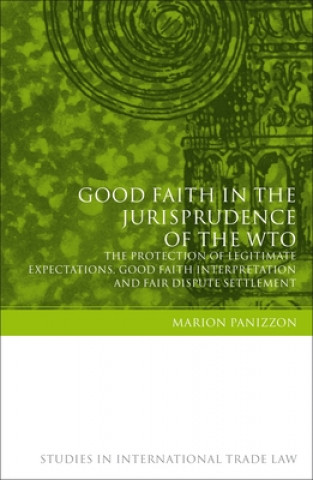
Kód: 04850060
Good Faith in the Jurisprudence of the WTO
Autor Marion Panizzon
What does the concept of good faith express? This book is the first to discuss what good faith means in international trade law. As a reference guide for scholars and practitioners it analyses the case law of WTO dispute settlemen ... celý popis
- Jazyk:
 Angličtina
Angličtina - Vazba: Pevná
- Počet stran: 434
Nakladatelství: Bloomsbury Publishing, 2006
- Více informací o knize

Mohlo by se vám také líbit
Dárkový poukaz: Radost zaručena
- Darujte poukaz v libovolné hodnotě a my se postaráme o zbytek.
- Poukaz se vztahuje na celou naši nabídku.
- Elektronický poukaz vytisknete z e-mailu a můžete ihned darovat.
- Platnost poukazu je 12 měsíců od data vystavení.
Více informací o knize Good Faith in the Jurisprudence of the WTO
Nákupem získáte 583 bodů
 Anotace knihy
Anotace knihy
What does the concept of good faith express? This book is the first to discuss what good faith means in international trade law. As a reference guide for scholars and practitioners it analyses the case law of WTO dispute settlement practice. The book describes how, why and when the concept of good faith links the WTO Agreements with other public international norms. The concept of good faith appears frequently in treaties and customary rules, but is most often considered a general principle of law. WTO law uses the corrolaries of pacta sunt servanda, the prohibition of abus de droit and the protection of legitimate expectation alongside the principle of good faith. An analysis of GATT 1947 and WTO case law reveals that the function of good faith varies. The Panel reports and the Appellate Body decisions make different use of it. The Appellate Body is prepared to apply the principle to WTO provisions only, while Panels use it more freely and substantively; that is, they apply good faith to fill lacunae in any of the WTO covered agreements. Also, adjudicators use the principle differently, depending on whether it relates to the agreements covered by the WTO or the procedural law of WTO dispute settlement. As it applies to the former, good faith is used to strike a balance between, on the one hand, the obligation to liberalise trade, and on the other hand, the right to invoke an exception to trade liberalisation for the protection of the environment, culture, public morals, human life or health. In this way, good faith safeguards the gains of multilateral trade liberalisation against unlawful interests such as disguised protectionism. The book also introduces the novel field of WTO procedural law governing trade dispute litigation. In the Dispute Settlement Understanding (DSU), good faith appears in the standard of review, rules of evidence and fact-finding, standing, duty of prior consultation, right of establishment of a panel, ex officio investigations, withdrawal of notices of appeal, and the raising of objections. In all these areas it ensures that the rules of dispute resolution are not abused. The Appellate Body has even gone so far as to derive a new standard from the principle of good faith that demands that disputes are settled fairly, promptly and effectively. Insights into good faith in WTO law are not only important for trade law professionals. Current applications and future operations of the principle are likely to be of strategic value for answering the increasingly pressing question of how WTO law and other international agreements ought to be reconciled.
 Parametry knihy
Parametry knihy
Zařazení knihy Knihy v angličtině Law International law Public international law
5832 Kč
- Plný název: Good Faith in the Jurisprudence of the WTO
- Podnázev: The Protection of Legitimate Expectations, Good Faith Interpretation and Fair Dispute Settlement
- Autor: Marion Panizzon
- Jazyk:
 Angličtina
Angličtina - Vazba: Pevná
- Počet stran: 434
- EAN: 9781841136202
- ISBN: 1841136204
- ID: 04850060
- Nakladatelství: Bloomsbury Publishing
- Hmotnost: 812 g
- Rozměry: 243 × 164 × 31 mm
- Datum vydání: 19. October 2006
Oblíbené z jiného soudku
-

Stanislavski On Opera
1115 Kč -

International Law
1191 Kč -
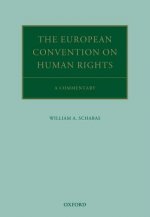
European Convention on Human Rights
2276 Kč -

European Union Law: A Very Short Introduction
249 Kč -

Environmental Law: A Very Short Introduction
249 Kč -

Europarecht in Fällen
1131 Kč -

Cyber Warfare and the Laws of War
1108 Kč -

Tallinn Manual 2.0 on the International Law Applicable to Cyber Operations
1840 Kč -

Refugee in International Law
1912 Kč -

Sceptical Essays on Human Rights
1947 Kč -

A Farewell to Wars
812 Kč -
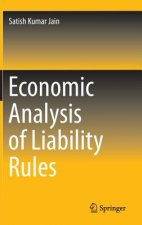
Economic Analysis of Liability Rules
1666 Kč -

Cassese's International Criminal Law
1804 Kč -

International Law
1089 Kč -

Textbook on International Law
1292 Kč -

International Law 2nd Edition
1665 Kč -

Principles of International Environmental Law
1697 Kč -

Offshore Finance
1315 Kč -

Advanced Introduction to International Humanitarian Law
756 Kč -

Human Dignity
1284 Kč -

Critical Approaches to International Criminal Law
1959 Kč -

Rogue States
517 Kč -

Criminological Approaches to International Criminal Law
2550 Kč -

Self-Defence in International and Criminal Law
5255 Kč -

Handbook of Environmental Policy Evaluation
4470 Kč -

Pluralism in International Criminal Law
5755 Kč -

Disputed Territories and International Criminal Law
4223 Kč -

EU External Relations Law
1994 Kč -

Water Capitalism
1320 Kč -
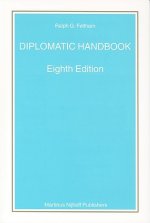
Diplomatic Handbook
3356 Kč -

Brownlie's Principles of Public International Law
2030 Kč -

International Environmental Law
1323 Kč -

Cases & Materials on International Law
1512 Kč -
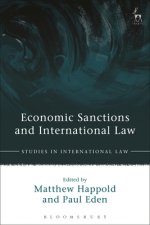
Economic Sanctions and International Law
3725 Kč -

Aust's Modern Treaty Law and Practice
1273 Kč -

Public International Law
2192 Kč -

Critical Introduction to International Criminal Law
951 Kč -

Modern Diplomacy
1466 Kč -

International Investment Law and Arbitration
1709 Kč -

Principles of International Humanitarian Law
815 Kč -

World Crisis and International Law
812 Kč -

Principles of International Economic Law
2413 Kč -

Environmental Protection
428 Kč -

Food Law and Regulation for Non-Lawyers
2698 Kč -

Should Trees Have Standing?
1073 Kč -

Research Handbook on International Environmental Law
1958 Kč -

International Criminal Law
1751 Kč -

European Public Prosecutor's Office
5355 Kč -

Customary International Law in Times of Fundamental Change
1117 Kč
Osobní odběr Praha, Brno a 12903 dalších
Copyright ©2008-24 nejlevnejsi-knihy.cz Všechna práva vyhrazenaSoukromíCookies




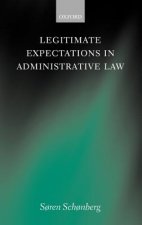
 Vrácení do měsíce
Vrácení do měsíce 571 999 099 (8-15.30h)
571 999 099 (8-15.30h)